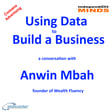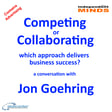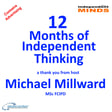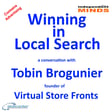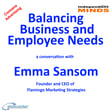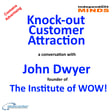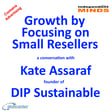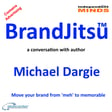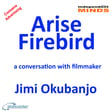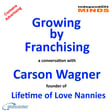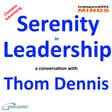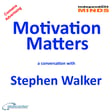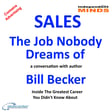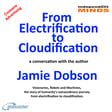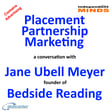
Identifying and Applying Transferable Skills – a conversation with Mike Lawrence
Looking back on a career and identifying the transferable skills that created long-term career success
Mike Lawrence is a well-being and workplace management consultant who is on a mission to help people build resilience, prevent burnout and build successful careers and lives.
He has established Mike Lawrence CIC, to reduce inequalities in mental health and wellbeing support for underserved individuals and communities.
In this episode of The Independent Minds Mike and host Michael Millward review his career from his first job as a Butlins Red Coat to roles in retail and IT to now running a community interest company focused on well-being.
Mike explains how the experience of different industries and the skills he has learnt prepared him for his current role and equipped him to develop his unique approach to well- being and coaching.
More information about Mike Lawrence and Michael Millward is available at abeceder.
Audience Offers
The Independent Minds is made on Zencastr, because as the all-in-one podcasting platform, Zencastr really does make creating content so easy.
If you would like to try podcasting using Zencastr visit zencastr.com/pricing and use our offer code ABECEDER.
Travel
With discounted membership of the Ultimate Travel Club, you can travel anywhere else at trade prices on flights, hotels, trains, and many more travel related purchases.
Fit For Work We recommend The Annual Health Test from York Test; a 39-health marker Annual Health Test conducted by an experienced phlebotomist with hospital standard tests carried out in a UKAS-accredited and CQC-compliant laboratory.
A secure Personal Wellness Hub provides easy-to-understand results and lifestyle guidance
Visit York Test and use this discount code MIND25.
Visit Three for information about business and personal telecom solutions from Three, and the special offers available when you quote my referral code WPFNUQHU.
Being a Guest
We recommend the podcasting guest training programmes available from Work Place Learning Centre.
We use Matchmaker.fm to connect with potential guests If you are a podcaster looking for interesting guests or if you have something interesting to say Matchmaker.fm is where great guests and great hosts are matched and great podcasts are hatched. Use our offer code MILW10 for a discount on membership.
We appreciate every like, download, and subscriber.
Thank you for listening.
